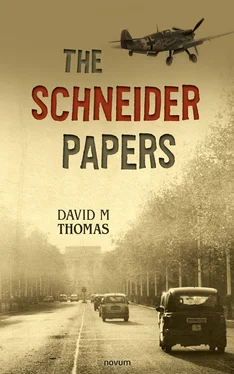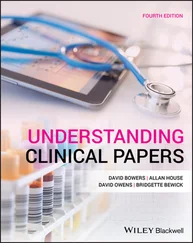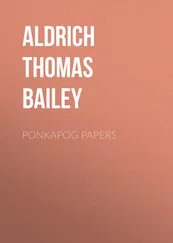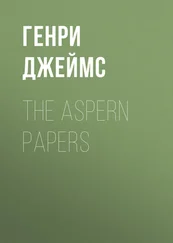1 ...6 7 8 10 11 12 ...26 ‘Right, moving on.’ Cartwright was glad of his opportune meeting with Sir Harry McGowan later. ‘What do we know about IG in the Americas?’ was the next question. Implication was again geared towards access to raw materials.
‘Major, we simply do not have the resources to do this sort of investigation justice. We are also up against what we call ‘camouflage companies.’ For example, under Spanish law, designed to protect home industry, heavy taxes are imposed on Spanish companies of which more than 25% of the capital is owned by a single foreign company. This would have meant that IG would have to pay out large sums of money as a result of its 50% participation in Fabricacion Nacional de Colorantes Y Explosivos S.A. Consequently just over half of its holding was transferred to Unicolor S.A. of Switzerland, a company controlled by IG. Corporation tax obligation erased by signatures on a Spanish tax return. That, Major, is not illegal. International companies will always seek to minimise tax obligations.’ The man from the Treasury looked at the other two, seeking support.
‘But we do have proof of IG attempts to dodge the United States Anti-Dumping Act of 1921 through the creation of camouflaged subsidiaries in Canada and Australia,’ chipped in Matthews. He felt that Cartwright needed something on the dastardly IG Farben. ‘We have included a section on American IG Farben. This company is controlled from Switzerland, but we have no information on its directors.’ Cartwright’s frustration came out as a long audible sigh.
‘But we do believe, nay suspect a strong link, possibly illegal, between American IG and IG Chemie registered in Switzerland and IG Farben of Ludwigshafen,’ continued the man from the Bank of England.
‘What does that actually mean?’ asked a now exasperated Cartwright.
‘Tax avoidance, for starters,’ said Matthews.
Mr John Haslett, a senior Bank of England official, who had decided early on in the meeting that it was his good fortune not to work directly for Major Cartwright, summed up. ‘To come back to your question Major, the foreign currency earned by international subsidiaries, camouflaged or not, and kept overseas, is, to us, a blank page. Funds from American subsidiaries are sent, we believe, to Switzerland. Quantity and transfer dates unknown. We do have a much better handle on legitimate, so to speak, earnings from export of various IG products from Germany. It all adds up, in our considered opinion, to a healthy pool of foreign currency to pay for raw materials.’
Matthews added, ‘We strongly believe that a substantial portion of international revenues is kept abroad, away from the German tax authorities – and, I have to say, with the probable knowledge of the current government, or perhaps we should say, certain members of government.’
‘The end justifies the means,’ concluded Cartwright wistfully, ‘and the objective of Hitler is to ensure national self-sufficiency, by whatever means.’
The meeting soon ended. Cartwright had not got to where he wanted to be. It threw up more questions than answers, and reinforced his deep foreboding, his fear of IG Farbenindustrie A.G. On a positive note, Cartwright had met young Christopher Matthews. When he found out that he was an auxiliary list Royal Air Force officer, then Matthews was most definitely to be snared, brought into the world of IRS.
***
The meeting with Sir Harry McGowan, chairman of Imperial Chemical Industries, was held on the first floor gentlemen’s smoking room of the Great Northern Hotel, Kings Cross. Sir Harry was to catch the 10.35 night train to Inverness for a long weekend at the estate of Lord Balvaird. The décor of the smoking room was that of a Pall Mall club; feel at home, a rest stop ready for that train journey to the long weekend shoot north of the border.
Cartwright thanked the busy chairman for meeting him at such short notice, and hoped the weekend would be a success. Yes, he did indeed know Lord Balvaird, a relative of his wife’s. Second cousin or perhaps third. ‘Please pass on Edwina and my best regards to Freddie and Clara.’
They sat in leather chesterfield armchairs opposite each other, separated by a small coffee table holding two glasses of whisky and a small jug of water.
Sir Harry was a clean-shaven, close-cropped-haired businessman of average height and weight. His piercing brown eyes ‘looked into your soul,’ Cartwright was to relate afterwards. He was dressed in a three piece country tweed and highly polished brown brogue shoes, ready for the trip up north. His Glaswegian accent had mellowed over the years, but was still there, and became more pronounced when strong sentiments were expressed. Here was a man who started work at the age of fifteen, and worked his way up from the shop-floor to becoming Managing Director of Nobel Industries Ltd, the company founded by Alfred Nobel, the philanthropist, explosives king, and chemicals magnate.
‘So, Major Cartwright of the Foreign Office, what is this subject of national importance that you need my thoughts and advice on?’
‘IG Farben.’ Was the abrupt reply, as Cartwright brought his glass of neat whisky to his lips.
Sir Harry McGowan’s private office had enquired after this Major Cartwright as soon as he had telephoned that morning, but had been given the go-around through numerous telephone pass-overs within the Foreign Office. A pass-the-parcel game where the music, in this case, didn’t stop. The intangible man. A Major Alastair Cartwright MC was indeed on the current Foreign Office civil servant list, and this fact was indeed acknowledged at a very senior level, but the problem was ascertaining his actual role in Whitehall. The Chairman’s office in ICI’s headquarters at Millbank prided itself in locating anyone anywhere. Even his formidable personal secretary, Miss Evershed, who had been with him since Nobel Industry days, was frustratingly stumped. This told the Chairman all he needed to know, for he was a man who could pick up the telephone and speak directly with the Prime Minister. The meeting was confirmed by a return phone call to the greenhouse.
‘What exactly do you want to know Major?’
‘Two questions. Briefly your commercial relationship with IG Farben, and secondly this coal-to-petrol method, or if you prefer, gasoline and ICI’s involvement in it. That’s it, Chairman.’
Sir Harry nodded his head, and was silent for a whole quarter of a minute. He took a sip of his whisky and water, and then another one. He was formulating a way to encapsulate the ICI coal-to-gasoline story into a short but succinct narrative.
‘May I answer the second question first?’ he asked politely. Cartwright smiled and nodded.
Sir Harry spoke quickly. ‘Like the Germans, we also had an explosives shortage during the last war, they, of course, more than us. The German Haber-Bosch process was well known, the difficulty was the commercial production of nitrogen and ammonia, and thence explosives. The trick was, if I may use the term, the combination of high temperature and very high pressure conditions in the presence of a particular catalytic mixture. We hadn’t mastered the trick, the physio-chemical balance required for such a particular reaction, and of course the mechanical and chemical engineering skills required for a high temperature, high pressure continuous commercial production plant. The Germans had nailed it. In 1917 our Government decided it should be in on the act as well and built a process plant at Billingham, Stockton on Tees, for the production of explosives.’ Sir Harry smiled and waved at someone behind Cartwright, and continued. ‘Germany kept details of the process secret; it was only after the war, with trade delegation visits and IG patent sharing, we learnt how to do it safely.’
Читать дальше












